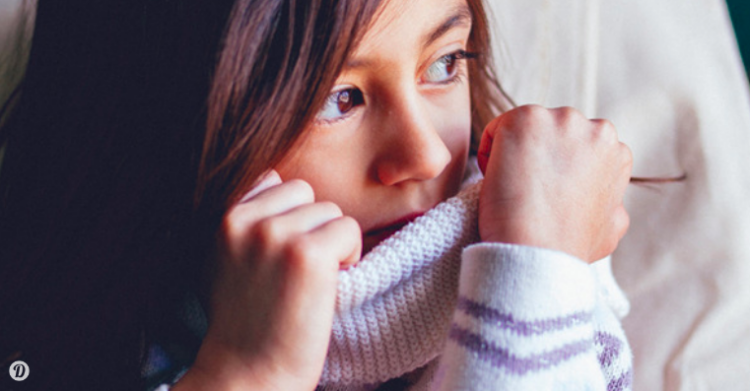People are finally starting to speak freely about mental health issues and how it can affect them.
However, in the midst of these discussions, we may have forgotten that children can suffer from stress and anxiety as well.
Even though they can suffer from anxiety, they probably don’t have the words to tell you what they’re going through. Take a look at these signs of anxiety in children.
What does anxiety look like in children?

According to Kids Health , children who have an anxiety disorder often worry over daily tasks and making mistakes.
They could also start worrying about things that shouldn’t be stressful, like playing with friends.
Seperation anxiety and social anxiety are also common in children.

It’s normal for kids to feel anxious when they start school or daycare.
Eventually, the anxiety caused by these situations should go away, but if it doesn’t, it is important to follow up with your doctor.
Emotional signs of anxiety in kids

Because children don’t always understand what anxiety is or how to ask for help, it can manifest in emotional or behavioral changes.
Children who suddenly begin acting angry for no clear reason, cry often, or experience nightmares could be suffering from anxiety.
Physical signs of anxiety

If your child begins to complain about frequent headaches or stomachaches without any physical cause, anxiety could be to blame.
Children could also start asking to stay home from school because they feel sick.
It’s important to remember that anxiety can also cause physical pain.

The nerves in the stomach are sensitive to the emotional distress of anxiety and this produces a physical pain.
That’s why kids often complain of their stomach hurting, even if there seems to be no physical reason.
Thankfully, there are ways you can help your child cope with anxiety.

The most important thing you can do as a parent is communicate openly and honestly with your child about their anxiety.
Creating a safe space for them to share their worries with you can have a dramatic effect.
It’s also important to remember that anxiety is a part of life.

Everyone feels anxious from time to time, but when anxiety begins to consume our lives, that’s when it becomes a problem.
Begin developing healthy strategies with your child to cope with situations that make them anxious.
And remember to watch for the signs and symptoms of anxiety.

If your child starts exhibiting a dramatic change in their behavior or physical well-being, it could be related to anxiety.
Don’t dismiss this possibility because of their age.
















































